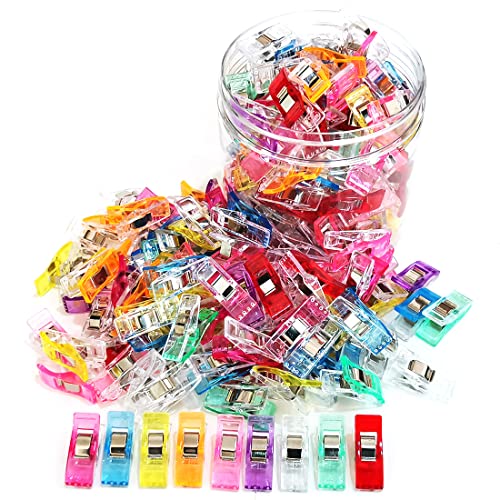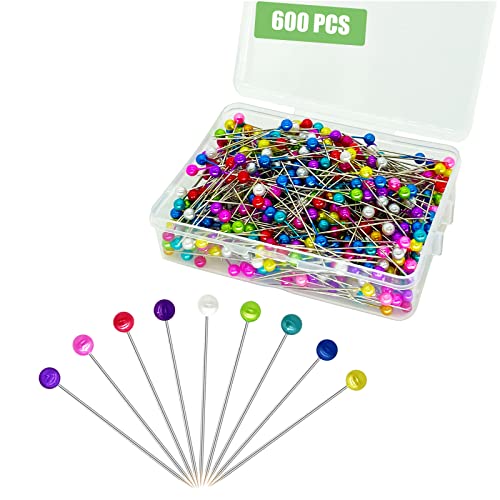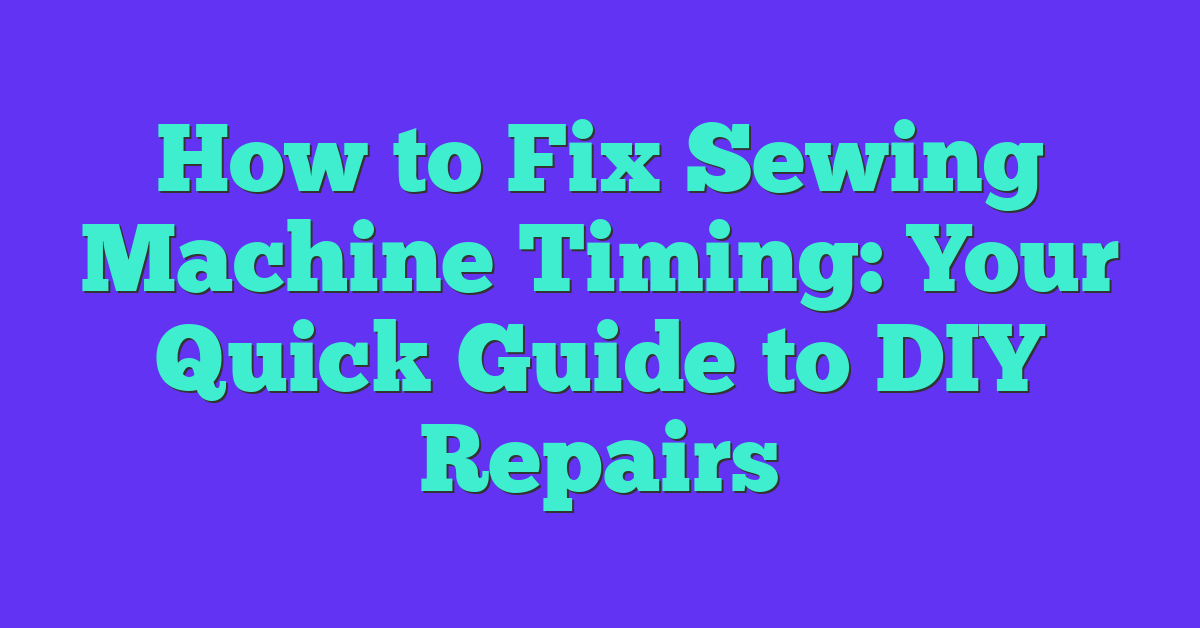Are you tired of constantly replacing your sewing machine needles? Have you ever wondered if there’s a way to extend their lifespan? Well, you’re in luck! In this article, we’ll explore the question of whether sewing machine needles can be sharpened. We’ll delve into the pros and cons of sharpening needles and provide you with some helpful tips to keep your sewing projects running smoothly. So, if you’re eager to save money and make the most out of your sewing machine needles, keep reading!
If you’re an avid sewer, you know how frustrating it can be when your sewing machine needle starts to dull. But before you rush to purchase a new one, have you ever considered sharpening it? In this article, we’ll tackle the age-old question of whether sewing machine needles can be sharpened. We’ll discuss the different types of needles, the sharpening process, and the potential benefits and drawbacks. So, if you’re looking to save some money and prolong the life of your sewing machine needles, this article is for you!
Understanding Sewing Machine Needles
When it comes to sewing, one of the essential tools in your arsenal is the sewing machine needle. It may seem like a small and insignificant part of your machine, but it plays a crucial role in achieving the perfect stitch. Understanding sewing machine needles is vital for every sewing enthusiast, whether you’re a beginner or a seasoned pro.
The Anatomy of a Sewing Machine Needle
Sewing machine needles have a distinct design that allows them to glide through fabric with ease. Understanding their anatomy can help you choose the right needle for your project. Here’s a quick breakdown:
- Shank: The shank is the uppermost part of the needle that fits into the needle holder. It is important to ensure that the shank is properly seated for smooth sewing.
- Shaft: The shaft is the long, slender part of the needle that penetrates the fabric. It comes in various lengths and diameters, depending on the type of fabric and thread you’re using.
- Point: The point of the needle is the sharp tip that pierces the fabric. It can be categorized into various types, such as sharp, ballpoint, or universal, each suited for different fabric types.
- Groove: The groove runs on the front side of the needle and helps control the thread as it enters the fabric. It prevents the needle from shredding the thread.
Can Sewing Machine Needles Be Sharpened?
Let’s tackle the burning question: can sewing machine needles be sharpened? While it’s true that needles do become dull or bent over time, sharpening them is not recommended. Sewing machine needles are precision-made and designed to have a specific shape and sharpness. Attempting to sharpen them may alter their structure and compromise their performance.
Instead of sharpening, it’s best to replace the needle when it starts showing signs of wear. A dull or bent needle can cause skipped stitches, thread breakage, or even damage to your fabric. By replacing your needles regularly, you’ll ensure optimal stitch quality and prevent unnecessary frustration in your sewing projects.
Remember, prevention is key! To extend the lifespan of your sewing machine needles, follow these tips:
- Use the right needle for the fabric you’re working with.
- Replace your needle after every 8-10 hours of sewing or after completing a project.
- Avoid pulling or pushing the fabric through the machine. Let the needle do the
Signs that Needles Need Sharpening
As an expert in all things sewing, embroidery, knitting, and crafts in general, let me share with you the signs that indicate your sewing machine needles might need sharpening. It’s important to keep an eye out for these signals to ensure optimal stitch quality and prolong the lifespan of your needles.
1. Skipped Stitches: Have you noticed that your stitches are skipping or not forming properly? This could be a sign that your needle has become dull and needs sharpening. A dull needle can struggle to penetrate fabric, resulting in skipped stitches and an uneven stitch line.
2. Fabric Damage: Pay attention to any excessive snagging or fraying of the fabric while sewing. A dull needle can cause unnecessary damage to your precious fabrics, leading to unwanted tears or holes. If your fabric is showing signs of distress, it’s time to consider sharpening or replacing your needle.
3. Uneven or Loopy Stitches: Are your stitches turning out uneven or loopy, even after adjusting tension and thread settings? This could be a clear indication that your needle needs sharpening. A dull needle can cause thread to loop or tangle, resulting in inconsistent stitch quality.
4. Thread Breakage: Is your thread constantly breaking while sewing? While there could be several reasons for thread breakage, a dull needle is often to blame. When the needle is dull, it can create excessive friction on the thread, leading to breakage. If you’re experiencing frequent thread breakage, it’s time to sharpen your needle.
5. Difficulty Piercing Thick Fabrics: If you’re working with thicker fabrics or multiple layers, a dull needle may struggle to penetrate them smoothly. You may notice that it takes more effort and you have to exert excessive pressure to sew through these materials. This is a clear indication that your needle needs sharpening.
Remember, sharpening sewing machine needles is not a recommended practice as it can compromise their performance. It’s best to replace them when they show signs of wear. By staying vigilant and recognizing the signs discussed above, you can ensure that you always have sharp needles in your machine, resulting in beautiful, professional-looking stitches every time.
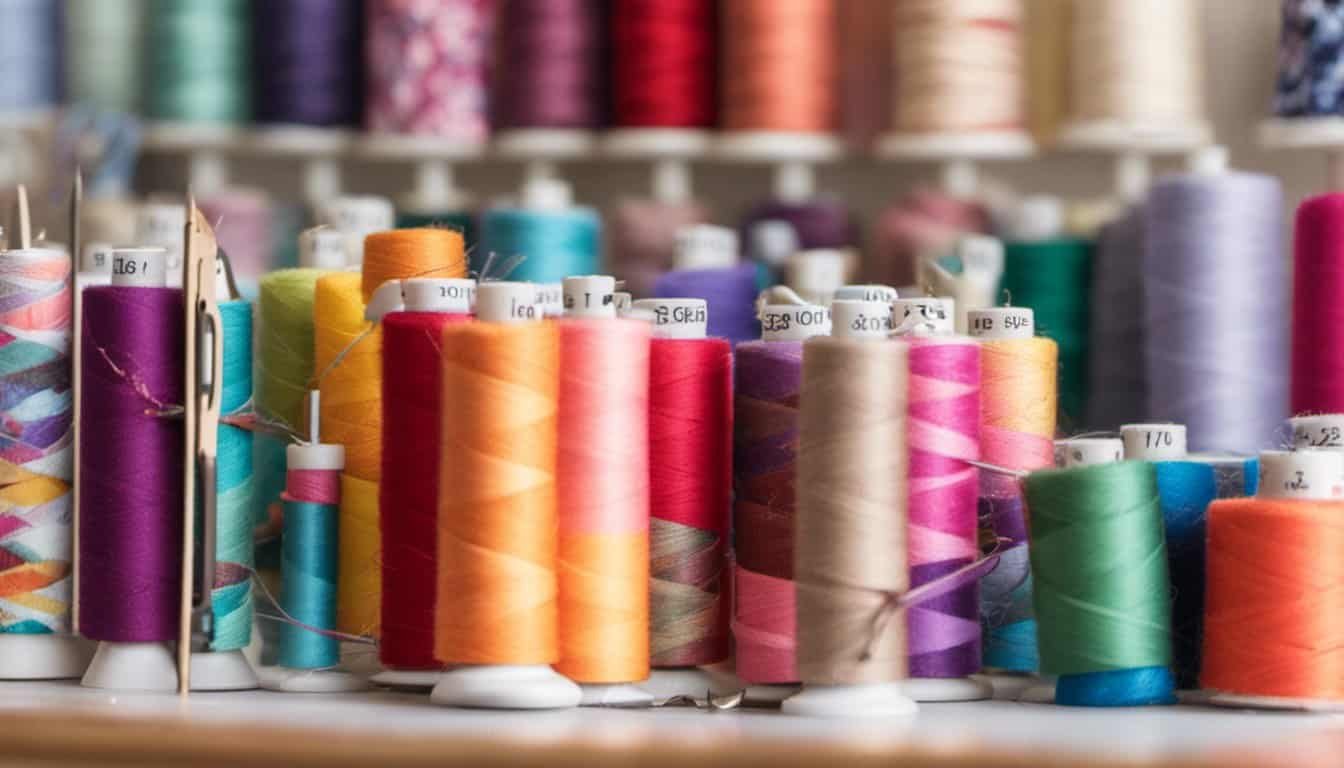
Can Sewing Machine Needles be Sharpened?
As an expert in all things sewing, embroidery, knitting, and crafts in general, you may be wondering if sewing machine needles can be sharpened. Well, the answer is both yes and no.
Let’s start with the good news. Yes, it is technically possible to sharpen sewing machine needles. There are some needle sharpeners available on the market that claim to be able to restore the sharpness of your dull needles. However, here’s the catch – it’s not recommended.
While these sharpeners may work to some extent, it’s important to understand that sewing machine needles are designed to be disposable. They are made with a specific shape, size, and angle that allows them to glide smoothly through the fabric and create perfect stitches. Sharpening the needle can alter its original shape and compromise its performance.
Moreover, sewing machine needles are not very expensive, especially when compared to the cost of potential fabric damage or stitch quality issues that can arise from using dull needles. It’s always better to replace a worn-out or dull needle rather than trying to sharpen it.
When should you know it’s time to replace your sewing machine needle? Keep an eye out for signs of wear, such as skipped stitches, fabric damage, uneven or loopy stitches, thread breakage, or difficulty piercing thick fabrics. If you notice any of these issues, it’s a clear indication that it’s time to swap out your needle for a new one.
« Discover the Untold Story: Who Invented the Game-Changing Sewing Needle? Prepare to Be Amazed
Discover the Ultimate Sewing Secrets to Unleash Your Inner Creativity in the Enchanted World of Elden Ring »
Remember, proper needle maintenance and regular needle replacements are essential for achieving optimal stitch quality and extending the lifespan of your sewing machine needles. So, instead of trying to sharpen your needles, make it a regular practice to replace them when signs of wear are present.
How to Sharpen Sewing Machine Needles
When it comes to sewing, having sharp needles is vital for achieving clean and professional-looking stitches. But what do you do when your sewing machine needle starts to dull? Can sewing machine needles be sharpened? Let’s explore this topic and find out!
Why might you need to sharpen your sewing machine needles?
Over time, sewing machine needles can become dull due to regular use. When a needle is dull, it can cause a range of issues, such as skipped stitches, fabric damage, uneven or loopy stitches, thread breakage, and difficulty piercing thick fabrics. If you notice any of these problems, it might be time to consider sharpening your needle.
Can you sharpen sewing machine needles?
Technically, sewing machine needles can be sharpened, but it’s not recommended. Sharpening needles can alter their shape and compromise their performance. It is more cost-effective and efficient to replace worn-out or dull needles.
How can you extend the lifespan of your sewing machine needles?
Instead of sharpening, focus on proper needle maintenance to extend the lifespan of your sewing machine needles. Here are a few tips:
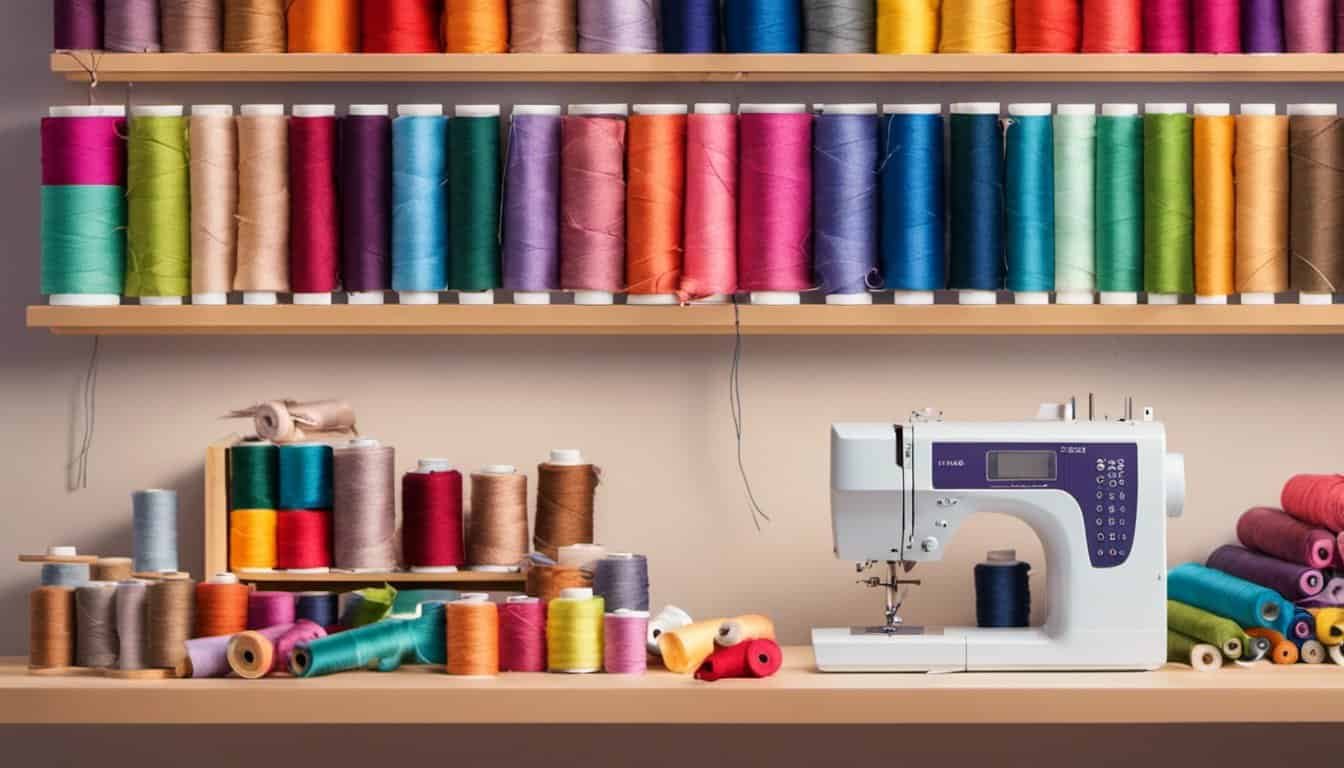
- Replace dull needles: As a general rule, replace your sewing machine needle after every 6-8 hours of sewing. This helps maintain optimal stitch quality.
- Use the correct needle for your fabric: Different fabrics require different needles. Make sure to use the appropriate needle size and type for your project.
- Avoid bending or hitting the needle: Accidents happen, but try to avoid bending or hitting the needle while sewing. Any damage to the needle can affect its performance.
Remember, sewing machine needles are affordable, and regular replacements are essential for achieving optimal stitch quality. So, rather than spending time and effort trying to sharpen your needles, invest in new ones when signs of wear are present.
Now that you have a better understanding of whether sewing machine needles can be sharpened, you can confidently take care of your sewing projects and enjoy hassle-free stitching!
Benefits of Sharpening Needles
When it comes to sewing machine needles, you might be wondering if they can be sharpened to extend their lifespan and save a little money. While sharpening needles may seem like a practical solution, it’s important to consider the potential benefits as well. Here are a few advantages of sharpening needles:
1. Cost Savings: One of the main benefits of sharpening sewing machine needles is the potential cost savings. Needles can be expensive, especially if you sew frequently or work on intricate projects. By sharpening dull needles, you can make them last longer and reduce the frequency of replacements.
2. Improved Stitch Quality: Sharpening a dull needle can enhance the quality of your stitches. When a needle is dull, it may cause skipped stitches, uneven or loopy stitches, and fabric damage. Sharpening the needle can help it penetrate the fabric smoothly and create neater, more precise stitches.
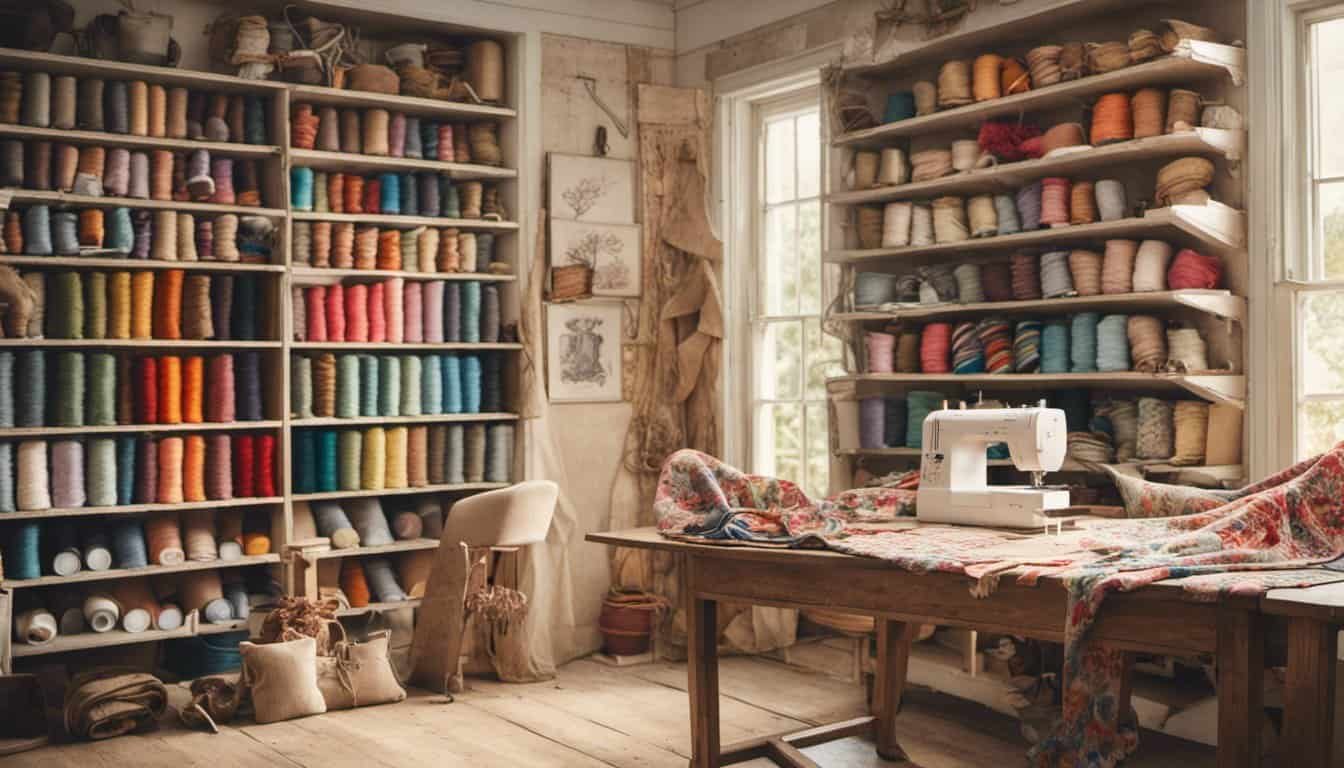
3. Versatility: Sharpened needles can be more versatile in handling different types of fabrics. When a needle is dull, it may struggle to pierce through thick fabrics like denim or upholstery material. By sharpening the needle, you’ll have an easier time sewing through various fabric weights, ensuring smooth and even stitches.
4. Reduced Thread Breakage: A sharp needle reduces the chances of thread breakage. Dull needles can cause the thread to fray or break more easily, leading to frustration and time wasted on constant re-threading. Sharpening your needle regularly can minimize these issues and ensure a more efficient sewing experience.
While sharpening needles may offer some benefits, it’s important to consider the drawbacks as well. Not all needles can be effectively sharpened, and improper sharpening techniques can actually damage the needle further. Additionally, sharpening needles requires specific tools and know-how, which may not be readily available or feasible for everyone.
Ultimately, the decision to sharpen or replace a needle depends on several factors, including the severity of the dullness, the type of needle, and personal preference. If you’re unsure about whether to sharpen or replace your needle, it’s always best to consult your sewing machine manufacturer’s recommendations or seek advice from a professional. Remember, maintaining optimal stitch quality is key to achieving beautiful, professional-looking results in your sewing projects.
Risks of Sharpening Needles
When it comes to sewing machine needles, it’s important to consider the risks associated with sharpening them. While it may seem like a cost-saving and convenient solution, there are a few things you should keep in mind before attempting to sharpen your needles:
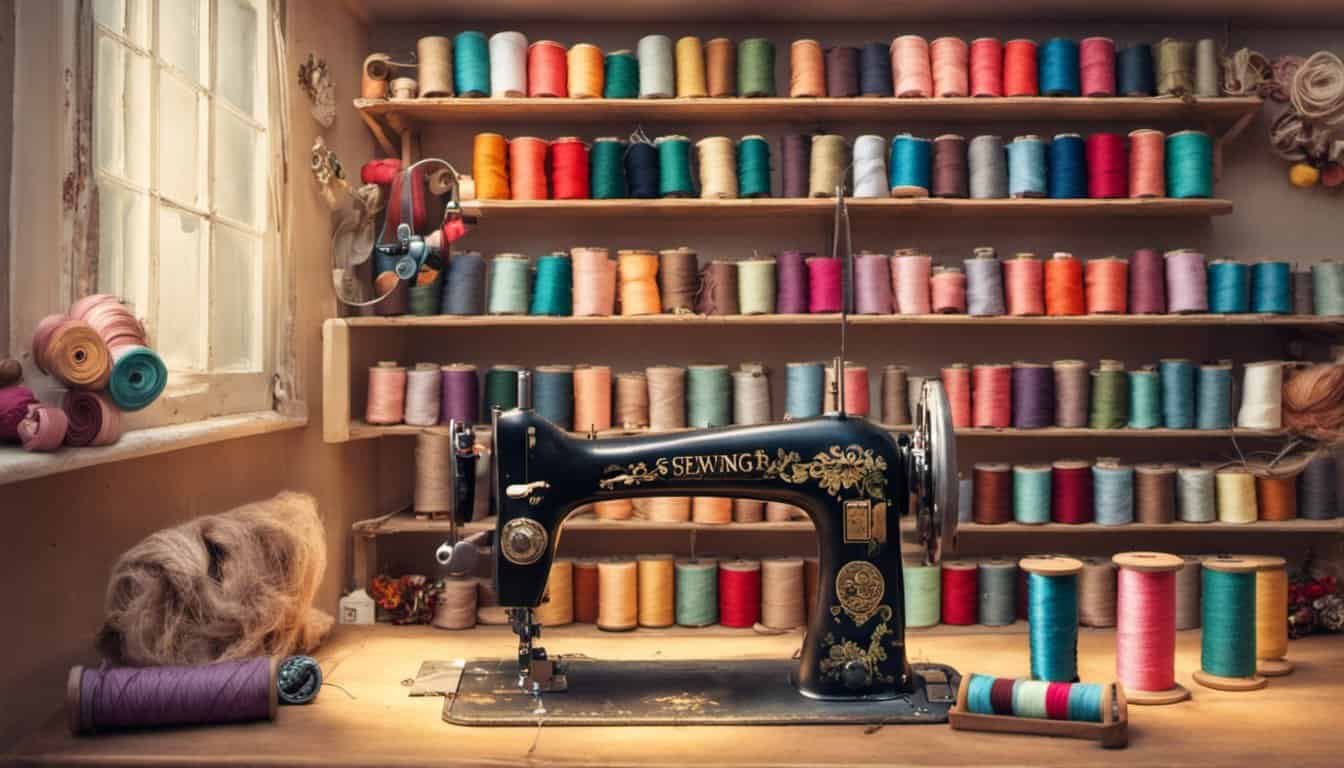
1. Damage to the Needle
Sharpening a needle requires careful handling and precision. If not done correctly, it’s easy to damage the needle, affecting its overall quality and performance. Even a tiny nick or burr on the needle can lead to skipped stitches or fabric damage, compromising the final result of your project.
2. Inconsistent Sharpness
Sharpening a needle at home can be challenging, especially if you don’t have the proper tools or experience. Achieving consistent sharpness across the entire length of the needle can be difficult, leading to uneven or loopy stitches. This can be frustrating and time-consuming to fix, and may result in a less professional-looking finished product.
3. Potential Injury
Sharpening a needle involves working with sharp objects. If you’re not careful, it’s easy to accidentally injure yourself. Sewing machine needles are designed to be replaceable for a reason – they’re often made with specialized machinery and equipment that ensures they are safe and easy to use. So, it’s best to leave the sharpening to the professionals to avoid any accidents.
4. Voiding Warranty or Damage to the Sewing Machine
Many sewing machine manufacturers explicitly state that attempts to sharpen needles can void the warranty of the machine. Additionally, using sharpened needles may put additional stress on your machine’s motor, potentially leading to damage or decreased lifespan. It’s always a good idea to consult your sewing machine’s manual or contact the manufacturer before attempting any modifications to the needles.
Conclusion
Remember, when it comes to sewing machine needles, it’s best to err on the side of caution. While it may be tempting to try and sharpen them at home, the risks outweigh the potential benefits. Inconsistent sharpness, damage to the needle, potential injury, and the possibility of voiding the warranty or damaging your sewing machine are all factors to consider.

Instead, prioritize proper needle maintenance and regular replacements. By doing so, you’ll not only achieve optimal stitch quality but also extend the lifespan of your sewing machine needles. So, the next time you notice signs that indicate your needles may need sharpening, resist the urge to take matters into your own hands. Instead, invest in new needles and enjoy the peace of mind that comes with knowing you’re working with the best tools for the job. Happy sewing!








